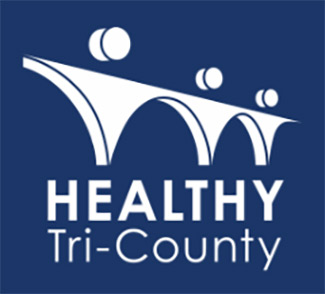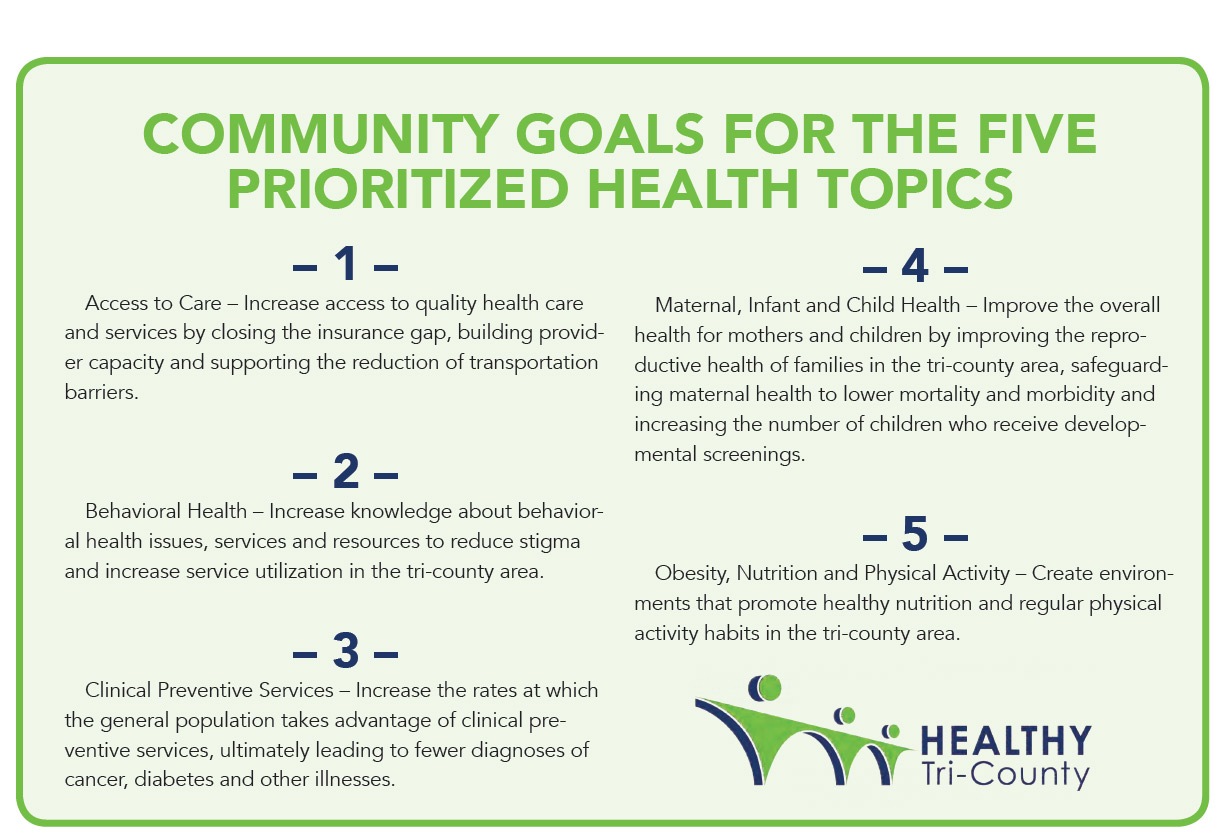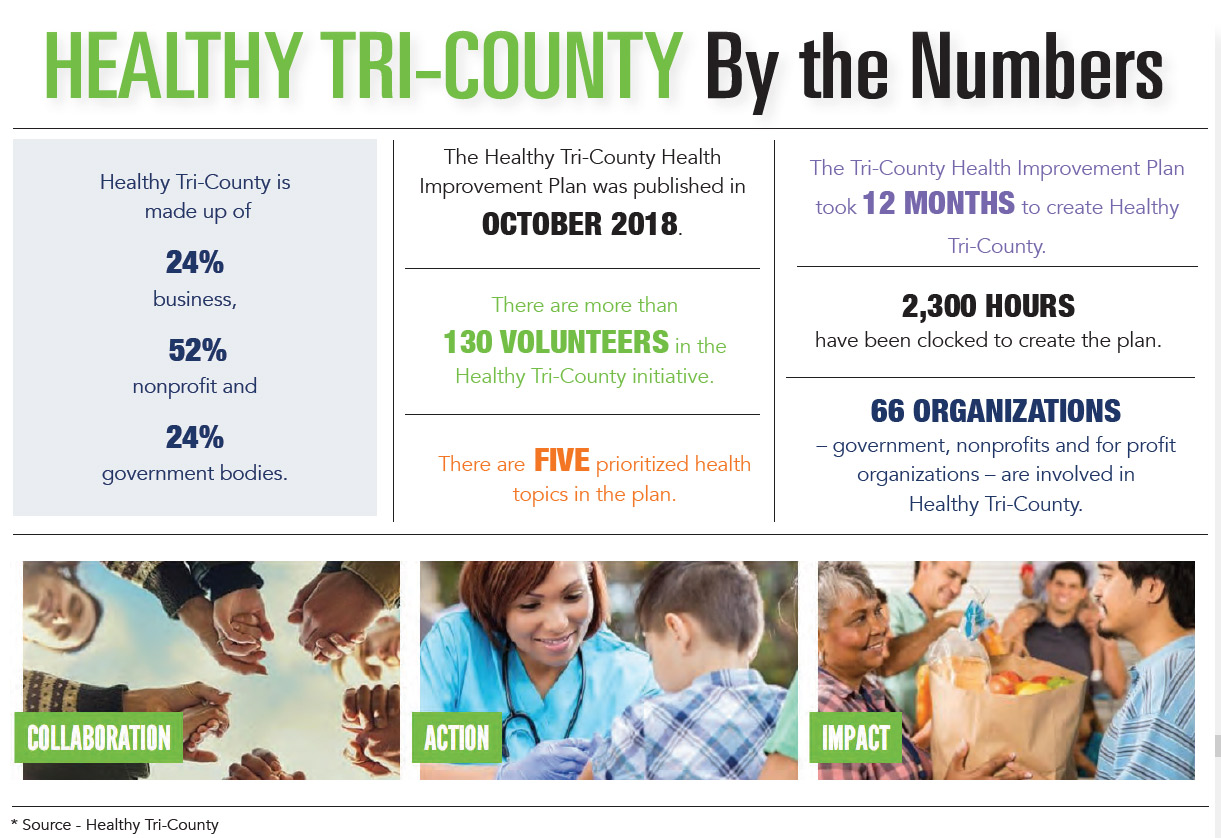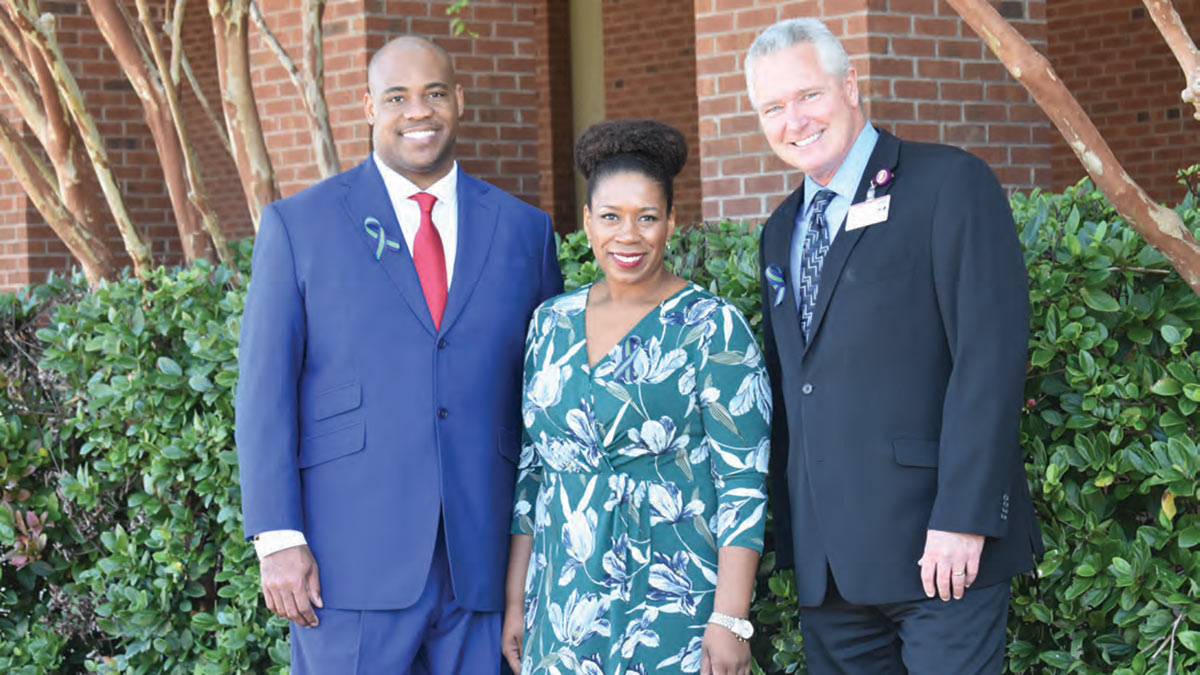Anton Gunn, chief diversity officer at MUSC Health; Kellye McKenzie, director of health at Trident United Way; and Mark Dickson, vice president of mission at Roper St. Francis Healthcare, are representatives of Healthy Tri-County’s three core partners.
According to Robert Wood Johnson Foundation’s County Health Rankings and Roadmaps, 32 percent of adult South Carolinians are obese. That number is 25 percent in Charleston County, 31 percent in Dorchester County and 37 percent in Berkeley County.And did you know that 13 percent of all new cancer diagnoses in the state occur in the tri-county area?
There are also numbers on access to care showing that 12.6 percent of tri-county residents under age 65 do not have health insurance and that the state’s binge drinking rate is 18 percent – 22 percent in Berkeley and Charleston counties and 18 percent in Dorchester County.

It’s no secret that South Carolina as a whole repeatedly ranks low on overall health scale – the United Health Foundation puts us in 43rd place. All of this and more is why for the first time ever, our government officials, local nonprofits and businesses are committed to doing something about our health. They are determined to improve this situation in South Carolina as a whole, starting with the tri-county area.
It all started in the spring of 2016, when Roper St. Francis Healthcare conducted its second Community Health Needs Assessment, partnering with Trident United Way and MUSC Health for the study.
Kellye McKenzie, director of health with Trident United Way, said nearly 1,500 people participated in the Community Health Needs Assessment, and over 600 community members participated in three health forums to discuss the findings and talk about opportunities for improving local health. She added that about 100 different area organizations were represented.
“From that study, we came up with what is most important to address from a health standpoint in the tri-county area,” she explained.
That’s why Healthy Tri-County was established in January 2017. Today, 66 nonprofit organizations are involved, along with about 130 individual volunteers, all the local governing bodies, Roper St. Francis Healthcare, MUSC and Trident United Way.
“We cannot operate on such a big initiative like this in isolation,” McKenzie pointed out. “It has to be a community-wide effort.”
In October 2018, Healthy Tri-County released “Our Health Our Future, Tri-County Health Improvement Plan 2018-2023” — developed by more than 80 community volunteers. The plan identified five main health priorities: access to care; behavioral health; clinical preventive services; maternal, infant and child health; and obesity, nutrition and physical activity.
“These priorities came from community conversations and are the real issues that residents deal with,” McKenzie said. “We found these five topics to be what matters the most.”
This community-wide effort took it a step further in April, when the “Find Your Fit” campaign was launched. McKenzie explained that what is special about it is that everyone can take the pledge (found at www.healthytricounty.com) to “find your fit” and explain what that means to you.
“It could be that you walk more, sign up for health insurance, get a physical, eat better, drive someone to their doctor appointment – the list goes on,” she said. “It is all about what finding your fit means to you, and that is different for everyone. It is just being healthier and being an advocate for health. That doesn’t necessarily mean just physical fitness and nutrition.”
She said the campaign has identified local health advocates or “champions,” as she calls them, who will be vocal about how they found their fit and what that looks like to them.
“We are encouraging everyone to go online and make that pledge and then take action,” she said. “Show what you are doing on social media and use the hashtag – #findyourfitHTC.”
The ultimate long-term goal of Healthy Tri-County is to improve the overall health of our local community.
“We want to reach out to every neighborhood, every community and everyone in our region who is struggling with the five health topics we identified,” McKenzie said. “We want people to know that they do have resources available to them.”
She concluded, “Together we can make a difference for our future.”
By Theresa Stratford









